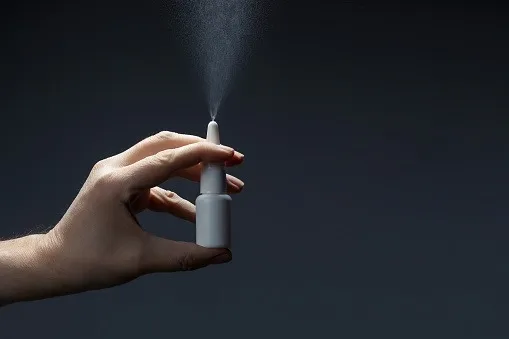A Nasal Spray Could Offer New Hope for Traumatic Brain Injury Treatment

Synopsis
Key Takeaways
- Nasal spray shows promise for TBI treatment.
- Research conducted at Mass General Brigham.
- Foralumab may enhance neurological outcomes.
- Potential applications in stroke patients.
- Next step involves human trials.
New Delhi, Feb 27 (NationPress) A nasal spray under development for targeting brain inflammation may also be beneficial in the treatment of traumatic brain injury (TBI), which is a significant cause of mortality and disability, as per a recent study.
In experiments conducted on mice, researchers from Mass General Brigham in the United States discovered that the nasal spray could decrease damage to the central nervous system and enhance behavioral outcomes.
This research implies a novel therapeutic strategy for TBI and various acute brain injuries.
Lead researcher Saef Izzy, a neurologist and head of the Immunology of Brain Injury Program at Brigham and Women’s Hospital (BWH), emphasized that TBI can result in cognitive decline and noted that “chronic inflammation is one of the significant contributors.”
“At present, there isn’t a solution available to mitigate the long-term effects of traumatic brain injuries,” added Izzy.
The research team explored the monoclonal antibody Foralumab, developed by the UK-based Tiziana, which has undergone clinical trials for conditions like multiple sclerosis and Alzheimer’s disease.
They conducted several experiments using mouse models with moderate-to-severe TBI to investigate the interaction between regulatory cells prompted by the nasal treatment and the microglial immune cells in the brain.
The findings revealed how these interactions modulate the immune response, leading to “better neurological outcomes, including reduced anxiety, cognitive decline, and enhanced motor skills,” according to Izzy. The results have been published in the journal Nature Neuroscience.
The researchers indicated that Foralumab might also be effective for “patients with brain injuries resulting from intracerebral hemorrhage and strokes.”
“Our patients suffering from traumatic brain injury still lack an effective treatment to improve their recovery, so this is an incredibly promising moment to advance a scientifically backed solution to their care,” remarked Izzy.
The next phase of this research aims to transition findings from preclinical studies to human trials, according to the research team.









